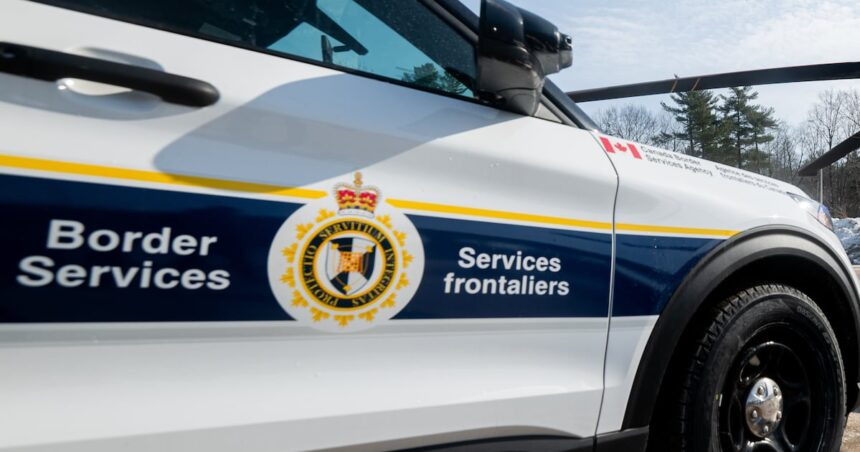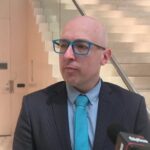Last week, three individuals faced justice in a disturbing case that shocked Toronto’s community when dozens of foreign nationals were discovered living in what police described as “deplorable conditions.” The sentencing marks the conclusion of a troubling investigation that uncovered serious exploitation happening right in our city’s neighborhoods.
According to York Regional Police, 84 foreign nationals were found living in severely overcrowded homes throughout the Greater Toronto Area. Many victims had been lured to Canada with promises of education and employment opportunities that never materialized. Instead, they found themselves trapped in a situation that investigators characterized as “modern-day slavery.”
The three defendants—whose names were withheld during my press briefing due to ongoing investigations into potential accomplices—received sentences ranging from 3 to 7 years after pleading guilty to human trafficking charges, fraud, and immigration violations.
“These individuals preyed upon vulnerable people seeking better lives,” said Detective Sarah Morrison from York Regional Police’s Human Trafficking Unit. “They confiscated passports, charged exorbitant ‘fees’ for housing and alleged services, and essentially trapped these people in a cycle of debt and fear.”
The victims, primarily from South and Southeast Asia, were crammed into houses in Markham, Richmond Hill, and Scarborough. In one particularly egregious case, investigators found 28 people sharing a three-bedroom bungalow with a single bathroom. Many were sleeping on mattresses placed directly on basement floors, with inadequate heating during winter months.
Toronto immigration attorney Priya Sharma, who assisted several victims, told me the case represents “just the tip of the iceberg” when it comes to exploitation of newcomers to Canada.
“Many victims don’t come forward because of language barriers, fear of deportation, or threats against family members back home,” Sharma explained. “This sentencing sends an important message, but we need stronger prevention systems and better support for those who’ve been exploited.”
The investigation began in early 2023 after a concerned neighbor reported unusual activity at one of the homes. What initially appeared to be an overcrowding situation quickly revealed itself as something far more sinister.
The victims paid between $8,000 and $15,000 to the traffickers, who had promised legitimate work permits, decent accommodations, and connections to educational institutions. Upon arrival in Canada, their documents were confiscated, and they were forced to work in various under-the-table positions while paying additional “fees” for transportation and housing.
City Councillor Raymond Chen from Scarborough has been vocal about addressing these issues in Toronto’s communities. “This case highlights significant gaps in how we monitor temporary foreign workers and international students,” Chen said. “We need better coordination between federal immigration authorities and local municipalities to prevent exploitation.”
The Canada Border Services Agency has been working with local authorities to determine the immigration status of the victims. According to CBSA spokesperson James Williams, the agency is “taking a victim-centered approach to ensure these individuals receive proper support while their status is being reviewed.”
Many of the victims have been connected with settlement agencies and temporary housing while they work with authorities. The Toronto-based Newcomer Support Network has stepped up to offer language assistance, counseling, and other essential services.
“The trauma these people have experienced cannot be understated,” said Maria Lopez, director of the Newcomer Support Network. “Beyond the physical conditions, there’s profound psychological damage from being deceived and exploited in a country where they came seeking opportunity.”
This case shares disturbing similarities with incidents uncovered in Barrie and Mississauga last year, suggesting organized networks may be operating throughout the region. York Regional Police have indicated the investigation remains active as they pursue additional suspects.
For Toronto residents, the case serves as a sobering reminder that human trafficking isn’t just an international issue—it happens in our own neighborhoods, often hidden in plain sight.
If you suspect human trafficking or labor exploitation, resources are available through the Canadian Human Trafficking Hotline at 1-833-900-1010, which provides 24/7 support in over 200 languages.
Community advocates are urging increased public awareness about the warning signs of trafficking and exploitation. Unusually high numbers of people entering and leaving residences, individuals who appear fearful or show signs of physical abuse, and people who aren’t allowed to speak for themselves could all indicate potential trafficking situations.
As our city continues to welcome newcomers from around the world, this case underscores the urgent need for stronger protections and vigilance to ensure Toronto remains a place of genuine opportunity rather than exploitation.







